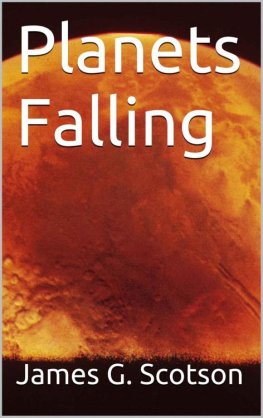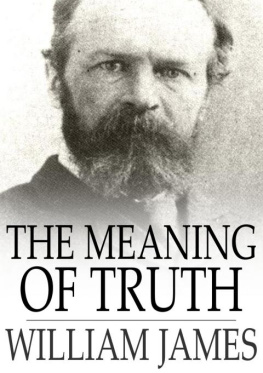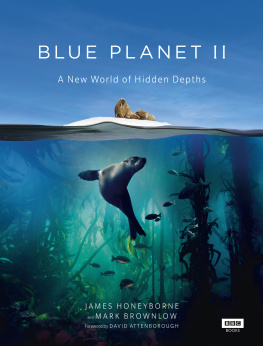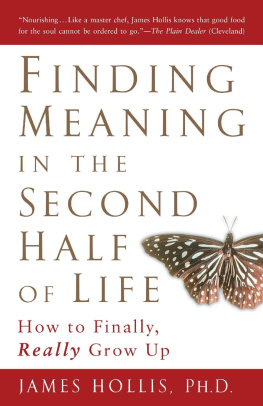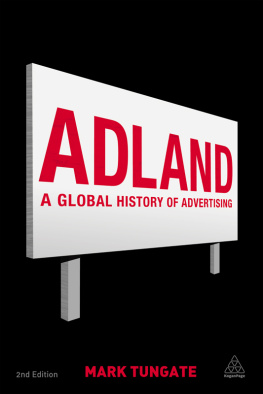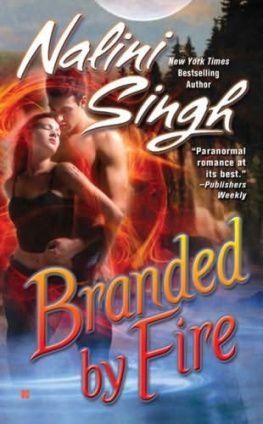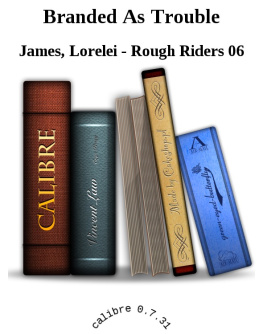James P. Othmer - Adland: Searching for the Meaning of Life on a Branded Planet
Here you can read online James P. Othmer - Adland: Searching for the Meaning of Life on a Branded Planet full text of the book (entire story) in english for free. Download pdf and epub, get meaning, cover and reviews about this ebook. year: 2009, publisher: Doubleday, genre: Detective and thriller. Description of the work, (preface) as well as reviews are available. Best literature library LitArk.com created for fans of good reading and offers a wide selection of genres:
Romance novel
Science fiction
Adventure
Detective
Science
History
Home and family
Prose
Art
Politics
Computer
Non-fiction
Religion
Business
Children
Humor
Choose a favorite category and find really read worthwhile books. Enjoy immersion in the world of imagination, feel the emotions of the characters or learn something new for yourself, make an fascinating discovery.

- Book:Adland: Searching for the Meaning of Life on a Branded Planet
- Author:
- Publisher:Doubleday
- Genre:
- Year:2009
- Rating:4 / 5
- Favourites:Add to favourites
- Your mark:
- 80
- 1
- 2
- 3
- 4
- 5
Adland: Searching for the Meaning of Life on a Branded Planet: summary, description and annotation
We offer to read an annotation, description, summary or preface (depends on what the author of the book "Adland: Searching for the Meaning of Life on a Branded Planet" wrote himself). If you haven't found the necessary information about the book — write in the comments, we will try to find it.
Adland: Searching for the Meaning of Life on a Branded Planet — read online for free the complete book (whole text) full work
Below is the text of the book, divided by pages. System saving the place of the last page read, allows you to conveniently read the book "Adland: Searching for the Meaning of Life on a Branded Planet" online for free, without having to search again every time where you left off. Put a bookmark, and you can go to the page where you finished reading at any time.
Font size:
Interval:
Bookmark:
Thanks to everyone in adland who gave me their time, insights, guidance, and support, including Ann Hayden, Ernie Schenck, and Roy Elvolve; to David Granger and Ryan DAgostino at Esquire; to Jacob Lewis and Jeff Garigliano at Cond Nast Portfolio; to Mark Stein at Portfolio.com; to Elisabeth Eaves and Hana Alberts at Forbes.com; to all of my former creative partners, especially Kenny Evans, Jeff Griffith, Aaron Smith, Corey Rakowski, and Kleber Menezes; to Joey Spallina at Tone Farmer; to Ben Goldhirsh and Zach Miller at Reason Pictures; to the Williams brothers, Tom and Dave; to Sylvie Rabineau at Rabineau Wachter and Sanford; to Bill Thomas, John Pitts, Alison Rich, and Melissa Ann Danaczko at Doubleday; to David Gernert, Erika Storella, Courtney Gatewood, Stephanie Cabot, Will Roberts, and everyone at the Gernert Company.
Who Do I Think I Am?
During the year and a half I spent researching and writing this, I was often asked, usually by people who knew me in my past life, What are you doing here? Didnt you write a novel? Didnt you gleefully leave this world behind?
The simple answer was that I was writing another book. Not another novel but, ironically, a book about the world I had supposedly gleefully left behind. Many who worked with me found this curious and funny, and not just because of the irony, but because, really, who the hell am I to write a book about advertising?
What the hell does Othmer, he of the workmanlike creative career and creeping cynicism, know about the perpetually changing landscape of adland?
After all, I never had my name on the door of an agency. Never ran a big-agency creative department. Adweek never published a picture of me dressed in black, with a ponytail and sunglasses, beneath the headline Hot Commodity. I never reaped an IPO windfall, created a famous Super Bowl spot, or wrote a phrase that would become part of the vernacular, like Just Do It! or Think Different or Wheres the Beef?
But for twenty years I made ads. One out of fifty probably ever made it out of the agency. Maybe one out of five hundred ever made it on the air. But some were smart or funny or surprising enough to make bad meetings good. Others made clients with one $300 million foot out the door step back inside to reconsider. Sometimes I sold the proverbial big idea. Sometimes all I did was say something that made someone elses big idea seem even bigger.
And sometimes I was simply a halfway reasonable, adult mind in an industry that wasnt always.
Heres what happened: in twenty years I went from earnest, wide-eyed junior copywriter to big-agency golden boy to disillusioned, bitter corporate burnout, then, briefly, back to golden boy, then to capable veteran, and finally back to corporate burnout, but this time without the bitterness or disillusionment. Because really, there is no reason for a rational adult to be disillusioned with advertising. With medicine, or art, or the Peace Corps, maybe. But saying youre disillusioned with advertising is like saying youre disillusioned with politics, or the porn industry.
What did we expect, fulfillment?
During my career I survived some fourteen rounds of layoffs, downturns in the industry and the economy, takeover threats, IPOs, sixteen creative directors, thirteen CEOs, the demise of one great agency, and the ongoing collapse of another.
For this I was given more money than I ever would have made in my fathers well-intentioned career of choice for me: masons laborer and, if I played my cards right, bricklayer.
Because of advertising I got to travel the world and meet many smart, talented, and powerful people, from CEOs and artists to four-star generals and Carrot Top.
Because of advertising I got to follow and occasionally lead and make hundreds of friends for life.
When I left advertising a few months before my novel was published, I was indeed ready for a change. But it is important to note that I never hated advertising or felt that I was above it (in fact, I was often humbled and awed by the superior ad talent of others). I had just felt for the first time in my life that I ought to be doing something else, something I wanted and needed to do more.
Then, while doing press for my novel, a funny thing happened. While some questions were about the book, most were about advertising. Why was it such a huge part of our culture? Was it responsible for globalization? The downfall of our youth? Whats the most despicable ad you ever made? The most despicable thing you ever saw?
My answers surprised me. Rather than rattling off witty renunciations of my past and the industry that had employed me, I found myself publicly defending advertising, and then, later, privately thinking about its role in my life and our culture more deliberately and sincerely than I had in the previous twenty years.
The simple answer to my friends in advertising is that I had come back to the scene of the crime because I was writing a book. A guys got to make a living, right? The real answer, of course, is much more complicated, and if I had an answer for their questions, I probably wouldnt have been there to begin with.
During my time on the road I spoke with hundreds of people at dozens of agencies. Creatives. Planners. Account execs. Digital wizards. CEOs. Consultants. I sat at conference tables, looked at reels, and stared into speakerphones as people pitched and bitched, getting excited and frustrated by ideas in real time. Embedded is a word Id taken to using to impress people, if only because it made me feel Anderson Cooperish.
I was fascinated by what they do and, more important, why they did it. Why do any of us do what we do, and is it a job, a profession, or a vocation?
Is it a calling, or a finding?
At first, when I tried to wrap my head around the entire advertising industry, it made my brain hurt. The mere thought of the myriad possible futures for digital advertising or media tended to make me curl up in the fetal position in a dark, brand-free room. I felt under-qualified, inadequate, analog. But when I approached the business one conversation at a time, one campaign or agency visit at a time, it made me feel somewhat better, if only because I came to realize that most of us dont have it all figured out yetthe industry or our vocationeither.
Is this book comprehensive? Hardly. It is simply an attempt to better understand something that has been such a large part of my life, and our culture, for so long.
One impression at a time.
Other Corporate Oxymorons
Do you think it would be morally acceptable to work on a beer account? How about light beer? Or hard liquor? For instance, eighty-proof sweet stuff with a cool name that goes down easy, especially for those, ahem, new to drinking. Would you sell it with humor? Sell it with sex? Does alcoholism run in your family? Would you sell it to a younger, potentially underage demographic by casting older people who look young? Would you target a minority? What if it ran only on late-night cable channels?
What about tobacco? Would you make cigarette ads? Would you make cigarette ads if they had huge YOU WILL DIE IF YOU SMOKE THESE! warnings plastered across the bottom? Would you do antismoking ads paid for by big tobacco? Would you not under any circumstances do cigarette ads yet work for a company or holding company that makes hundreds of millions of dollars every year marketing cigarettes and selling them without communications restrictions to the third world? Does cancer run in your family?
Would you work on a military account? Would you if the assignment was to increase the number of eighteen-year-old recruits during an unpopular war? Does your 401(k) portfolio include any corporation or affiliate of a tobacco or defense contracting company?
Font size:
Interval:
Bookmark:
Similar books «Adland: Searching for the Meaning of Life on a Branded Planet»
Look at similar books to Adland: Searching for the Meaning of Life on a Branded Planet. We have selected literature similar in name and meaning in the hope of providing readers with more options to find new, interesting, not yet read works.
Discussion, reviews of the book Adland: Searching for the Meaning of Life on a Branded Planet and just readers' own opinions. Leave your comments, write what you think about the work, its meaning or the main characters. Specify what exactly you liked and what you didn't like, and why you think so.

